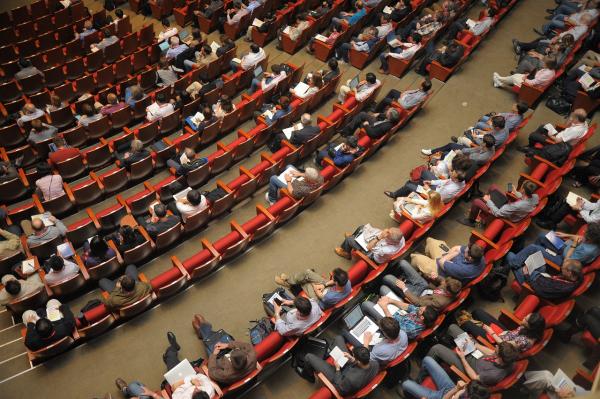

Learning resource
Round table with experts
- Promote communication on the wider topic of radicalisation.
- Exchange of views on radicalisation for a better understanding of the phenomenon.
- Awareness about issues caused by radicalisation among migrants and refugees.
- Addressing various stereotypes about radicalisation from the experts' point of view, and challenging those stereotypes with real-life cases.
- Questioning the role of the school.
The school announces an open-type event including a round-table discussion, and invites two experts in the field of radicalisation processes.
Moderated discussion (one speaker after another) with 3 rounds of questions. At the end the moderator makes a short overall conclusion, inviting listeners to active collaboration and discussion.
Topics include exposing stereotypes and understanding others, especially migrants, refugees and other citizens who converted to Islam, through a confrontation of the experts and the migrants with the local community in an open-type event.
The round table can be organised around three topics.
1. Radicalisation as a process
What is radicalisation?
What different kinds of radicalisations are there?
Questioning stereotypes linked to radicalisation, such as:
- ''All radicalised persons have mental health problems.''
- ''Refugees and migrants are radicalised persons.''
- ''Only boys are affected by radicalisation.''
- ''People become radicalised because they were excluded by their family.''
- ''Radicalised persons are not well integrated.''
- ''Radicalised persons are not successful in school.''
- ''Islamists are trying to cheat our asylum system.''
- "Radicalised persons are usually second or third-generation immigrants."
- ''Only migrants are affected by radicalisation.''
2. The role of the school
- Various levels of action, from prevention to detection.
- School managers as agents in the prevention of radicalisation.
- Empowering and supporting teachers.
- Schools in the local environment.
- Relationships with families.
3. Re-integration as a challenge
- Possibilities of re-integration for radicalised persons who have not committed crimes.
- To what extent is it possible to de-radicalise offenders or returnees from Syria?
- How can we reintegrate the families of the returnees?
- What can be the role of the school with returnees?
The module includes individuals' life stories and the pathways that led them to radicalisation, as well as cases of moving to Islamic countries. You can also use footage of personal testimonies and stories of people from other countries.
- Experts (1-2) on radicalisation
- Representatives of stigmatised groups (political or religious, depending on the local context)
- School manager
- Representative from an educational institution
- Moderator
Strengthening partnerships between schools and various communities.
Development of communication with families.
Organising a formal training for teachers.
English
French
Slovenian
Portuguese, Portugal
German
Romanian
Greek
Italian
Spanish
Dutch
